As global trade continues to expand, the shipping route between China and Mauritius has emerged as a critical link in the international supply chain. Sea freight plays an essential role in this dynamic, offering a cost-effective and efficient method for transporting goods across vast ocean distances. With China’s position as a manufacturing powerhouse and Mauritius’ strategic location in the Indian Ocean, businesses can leverage sea freight to enhance trade operations and streamline logistics. This comprehensive guide will explore the various options available for sea freight from China to Mauritius, including Less than Container Load (LCL) and Full Container Load (FCL) shipping, along with insights into costs, transit times, major ports, and the necessary preparations for a successful shipping experience. Whether you are a seasoned importer or exploring new markets, understanding these elements will empower you to optimize your supply chain and drive business growth.
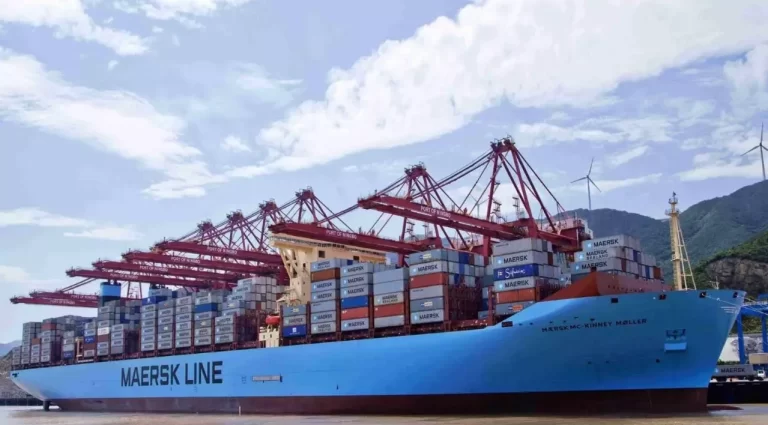
Introduction to Sea Freight from China to Mauritius
Sea freight serves as an essential pillar in the trade relationship between China and Mauritius, facilitating the transportation of goods across vast ocean distances. With China’s growing economic influence and Mauritius’ strategic location in the Indian Ocean, the shipping route between these two regions has become increasingly vital for global trade.
The importance of sea freight in this context cannot be overstated. It offers a cost-effective solution for transporting large volumes of goods, thus allowing businesses in both China and Mauritius to engage in significant trade activities. As a result, sea freight not only enhances supply chain efficiency but also fosters economic growth in both nations.
When considering sea freight options, businesses have the advantage of various services that cater to their specific needs. Whether opting for Less than Container Load (LCL) or Full Container Load (FCL) shipping, each method brings distinct benefits. Understanding these options empowers businesses to make informed decisions that align with their logistics strategies.
Understanding Sea Freight Options
Less than Container Load (LCL) Shipping
Less than Container Load (LCL) shipping allows exporters and importers to consolidate their goods in a shared container. This method is particularly advantageous for those with smaller volumes of goods that do not require an entire container.
Advantages of LCL
- Cost-efficient: LCL shipping can significantly reduce transportation costs for small shipments, as you only pay for the space your goods occupy in the container.
- Flexibility: This shipping method offers more frequent sailing schedules and can accommodate various types of cargo, allowing businesses to respond quickly to market demand.
- Lower Inventory Costs: Companies can ship smaller quantities more frequently, minimizing the need to hold large volumes of inventory.
Ideal Use Cases for LCL
LCL is particularly beneficial for small to medium-sized businesses or those testing new markets. It is also well-suited for:
- Start-ups: Companies entering the market for the first time can test their products without committing to larger shipments.
- Seasonal Products: Businesses with fluctuating demand can use LCL to adjust their shipments based on current needs without overstocking.
Full Container Load (FCL) Shipping
Full Container Load (FCL) shipping is the preferred option for transporting larger volumes of goods. With FCL, shippers have exclusive use of an entire container, providing them with complete control over their cargo.
Advantages of FCL
- Cost-effectiveness for Large Volumes: Although the initial cost may be higher than LCL, it becomes more economical per unit for larger shipments, as the costs are spread across all items in the container.
- Reduced Risk of Damage: With dedicated use of a container, goods are less likely to be damaged during transit, as they are not subject to consolidation and de-consolidation procedures.
- Faster Transit Times: FCL shipments often have shorter transit times because they involve fewer handling processes compared to LCL shipments.
Ideal Use Cases for FCL
FCL is particularly suited for businesses with consistent demand for larger shipments. Common use cases include:
- Manufacturers: Companies that produce goods in bulk can benefit from FCL to maintain steady inventory levels.
- E-commerce Brands: Online retailers that require large quantities of stock to meet consumer demand often utilize FCL for efficient replenishment.
| Shipping Method | Advantages | Ideal Use Cases |
|---|---|---|
| Less than Container Load (LCL) | Cost-efficient, flexible, lower inventory costs | Start-ups, seasonal products |
| Full Container Load (FCL) | Cost-effective for large volumes, reduced risk of damage, faster transit times | Manufacturers, e-commerce brands |
By understanding these sea freight options for shipping from China to Mauritius, businesses can select the most effective logistics strategy, optimizing their supply chain while minimizing costs. For those seeking expert assistance, Dantful International Logistics offers a comprehensive range of freight forwarding services, ensuring a seamless shipping experience tailored to your specific needs. Explore our services today to enhance your trade operations!
READ MORE:
- Shipping From China To Algeria
- Shipping From China To Angola
- Shipping From China To Morocco
- Shipping From China To Nigeria
- Shipping From China To Kenya
- Shipping From China To Tanzania
- Shipping From China To South Africa
Comparing LCL and FCL Shipping Costs
When deciding on a shipping method for transporting goods from China to Mauritius, understanding the cost dynamics of Less than Container Load (LCL) and Full Container Load (FCL) is critical. Each option involves different cost factors and average rates, which can significantly impact overall logistics budgets.
Cost Factors for LCL and FCL
The following factors contribute to the cost structure for both LCL and FCL shipping:
- Freight Charges: The base cost for transporting goods over sea, which varies based on the shipping line, route, and current market conditions.
- Handling Fees: Costs associated with loading and unloading containers at ports, which can be higher for LCL due to the need for additional handling.
- Customs Duties and Taxes: Import duties imposed by the Mauritian government on goods entering the country, which affect both LCL and FCL shipments.
- Insurance Costs: While insurance is optional, it is often recommended for both LCL and FCL shipments to protect against potential loss or damage during transit.
- Port Charges: Fees charged by ports for the use of their facilities and services, which can vary based on container size and type.
Average Rates for LCL and FCL from China to Mauritius
The average shipping costs for LCL and FCL can vary based on factors such as the shipping line, current demand, and fuel prices. Here’s a comparative overview of the typical rates:
| Shipping Method | Average Cost per Cubic Meter (LCL) | Average Cost per 20ft Container (FCL) | Average Cost per 40ft Container (FCL) |
|---|---|---|---|
| LCL | $80 – $120 | N/A | N/A |
| FCL | N/A | $1,200 – $1,800 | $2,400 – $3,000 |
The table above highlights that while LCL is more cost-effective for smaller shipments, FCL offers significant savings per unit for larger volumes, making it a preferable option for businesses with higher shipping needs.
Typical Transit Times for Sea Freight
Transit time is a crucial element in shipping logistics, influencing inventory management and customer satisfaction. The average transit times for LCL and FCL shipments from China to Mauritius vary, shaped by different operational processes involved in each method.
Average Transit Times for LCL and FCL
The estimated transit times for LCL and FCL shipments can differ due to variegated handling procedures and shipping schedules:
| Shipping Method | Average Transit Time to Mauritius |
|---|---|
| LCL | 25 – 35 days |
| FCL | 20 – 30 days |
As illustrated, FCL shipments tend to have a slight advantage in transit times, primarily due to fewer handling steps and the direct nature of the transport process.
Factors Affecting Transit Times
Several variables can influence transit times for both LCL and FCL shipping, including:
- Port Efficiency: The operational efficiency of both the departure and destination ports can significantly impact loading and unloading times.
- Weather Conditions: Adverse weather can cause delays in shipping schedules and port operations, particularly during storm seasons.
- Customs Clearance: The speed of customs procedures at both ends can affect how quickly goods are processed and allowed to enter the market.
- Shipping Line Schedules: Variability in shipping line schedules and routing can lead to deviations from typical transit times, especially during peak seasons.
Understanding these cost and transit time dynamics equips businesses with the insight needed to make informed decisions when selecting their shipping methods. Dantful International Logistics offers a wealth of expertise in navigating these complexities, ensuring that your shipping from China to Mauritius is both efficient and cost-effective. Explore our services for tailored logistics solutions today!
You may be interested in the following related articles:
- Shipping From China To Sierra Leone
- Shipping From China To Rwanda
- Shipping From China To Namibia
- Shipping From China To Cameroon
- Shipping From China To Botswana
- Shipping From China To Zimbabwe
Major Chinese Ports for Exports to Mauritius
When shipping goods from China to Mauritius, the choice of port can significantly impact the logistics process, including transit times and costs. Several major Chinese ports serve as critical hubs for exports to Mauritius.
Key Ports in China for Sea Freight to Mauritius
Shanghai Port
- Overview: As the largest port in China and one of the busiest in the world, Shanghai Port handles a substantial volume of international trade.
- Significance: It is strategically located near major manufacturing regions, making it a favored choice for exporters.
Shenzhen Port
- Overview: Located in Guangdong Province, Shenzhen is a major manufacturing and export center.
- Significance: Known for its advanced logistics services, Shenzhen Port efficiently handles a variety of cargo, including electronics and textiles.
Ningbo-Zhoushan Port
- Overview: This port is the third largest in China and is recognized for its extensive container handling capabilities.
- Significance: Ningbo-Zhoushan offers excellent connectivity and frequent services to major shipping lines.
Guangzhou Port
- Overview: Situated in southern China, Guangzhou Port is an essential gateway for imports and exports in the region.
- Significance: It provides a robust network of logistics services, supporting a variety of industries.
Tianjin Port
- Overview: As the primary port for northern China, Tianjin Port plays a crucial role in facilitating trade for several provinces.
- Significance: It serves as a vital entry and exit point for goods, benefiting from direct access to the Bohai Sea.
Advantages of Each Port
| Port | Advantages |
|---|---|
| Shanghai Port | – Extensive shipping options and global reach <br> – High efficiency in handling large volumes |
| Shenzhen Port | – Proximity to major manufacturing hubs <br> – Advanced logistics and customs services |
| Ningbo-Zhoushan Port | – Strong connectivity with international shipping lines <br> – High container handling capacity |
| Guangzhou Port | – Comprehensive logistics support across various industries <br> – Efficient customs clearance processes |
| Tianjin Port | – Strategic location for northern exports <br> – Direct access to the Bohai Sea facilitates faster transit |
Understanding which port to choose for exports to Mauritius can enhance supply chain efficiency and reduce costs. Each port presents unique advantages that align with different shipping needs.
Mauritius Ports for Receiving Sea Freight
Upon arrival in Mauritius, it is essential to have an understanding of the local ports that facilitate the receipt of goods. Mauritius has developed a robust port infrastructure capable of handling diverse cargo types.
Main Ports in Mauritius for Receiving Goods
Port Louis
- Overview: This is the main port and the largest in Mauritius, handling the majority of the country’s international trade.
- Significance: Port Louis serves as the primary entry point for imports and is well-equipped to manage containerized cargo.
Port Mathurin
- Overview: Located on Rodrigues Island, Port Mathurin supports local trade and connects to mainland Mauritius.
- Significance: This port caters primarily to regional trade and smaller vessels.
Grand Baie
- Overview: While primarily a tourist destination, Grand Baie’s harbor is used for smaller vessels and fishing boats.
- Significance: It contributes to the local economy, facilitating the transport of goods, albeit on a smaller scale.
Port Infrastructure and Handling Capabilities
Port Louis:
- Equipped with advanced container handling facilities, the port operates multiple berths and is capable of accommodating large container ships. Efficient customs procedures and modern warehousing facilities enhance its operational capabilities.
Port Mathurin:
- Offers basic handling facilities suitable for regional trade. While smaller than Port Louis, it provides essential services for inter-island trade, ensuring the distribution of goods to Rodrigues Island.
Grand Baie:
- Primarily a recreational harbor, it has limited handling facilities for goods. It is mainly used for local fishing activities and smaller cargo vessels.
| Port | Infrastructure and Handling Capabilities |
|---|---|
| Port Louis | – Multiple berths for large vessels <br> – Advanced container handling <br> – Efficient customs clearance processes |
| Port Mathurin | – Basic facilities for smaller vessels <br> – Supports regional trade for Rodrigues Island |
| Grand Baie | – Mainly recreational <br> – Limited cargo handling capacity, primarily for local fishery activities |
The effective operations of these ports ensure that goods shipped from China are received in Mauritius efficiently, allowing businesses to maintain smooth supply chain operations. Leveraging the strengths of both Chinese and Mauritian ports can optimize shipping strategies and enhance overall trade efficiency. For expert assistance in navigating these logistics, consider the offerings of Dantful International Logistics, your reliable partner in global trade solutions.
Preparing Your Shipment for Sea Freight
Effective preparation of your shipment is vital for ensuring a seamless sea freight process. This involves meticulous attention to both documentation and packaging, which are critical to avoiding delays and complications during transit.
Essential Documentation
Accurate and complete documentation is crucial for the successful transport of goods. Here are the key documents you need to prepare:
Commercial Invoices: This document provides a detailed account of the goods being shipped, including item descriptions, quantities, and prices. It serves as a primary record for customs and helps determine the duties owed.
Packing Lists: This outlines the contents of each package, detailing the dimensions and weight of the cargo. A packing list is essential for both the shipping company and customs authorities to ensure that shipments are accurately assessed.
Bills of Lading: A bill of lading acts as a contract between the shipper and the carrier, stating the terms of the shipment. It serves as a receipt for the goods and is necessary for claims in the event of loss or damage.
Export Licenses: Depending on the nature of the goods, an export license may be required, especially for controlled or restricted items. Ensure you verify the licensing requirements well in advance.
Ensuring all documentation is accurate and readily available can significantly streamline the shipping process and prevent customs delays.
Packaging and Labeling
Proper packaging and labeling are essential for protecting your goods during transit and facilitating customs clearance.
Packaging Guidelines for Sea Freight:
- Use sturdy materials that can withstand the rigors of ocean transport, such as reinforced cardboard boxes or wooden crates.
- Ensure that goods are cushioned adequately to prevent movement within the container, employing materials like bubble wrap, foam, or packing peanuts.
- Consider moisture-resistant packaging, especially for items susceptible to humidity.
Proper Labeling for Customs Clearance:
- Clearly label each package with the sender’s and receiver’s information, including addresses and contact numbers.
- Include contents description and relevant labels indicating handling instructions (e.g., “Fragile,” “This Side Up”).
- Ensure that all labels are written in English and the language of the destination country to avoid confusion.
Adhering to these guidelines will help safeguard your shipment and facilitate efficient processing through customs.
Navigating Customs Clearance
Customs clearance is a critical aspect of the shipping process. Understanding the procedures involved in both China and Mauritius is necessary for a smooth experience.
Understanding Customs Procedures in China and Mauritius
China: Exporters must ensure compliance with Chinese export regulations, which may include obtaining necessary permits and submitting required documentation. Customs in China generally requires all documentation to be submitted electronically via the China Customs system.
Mauritius: Upon arrival, shipments must go through the Mauritius Revenue Authority (MRA) for customs clearance. Importers will need to provide all relevant documentation, including the commercial invoice, packing list, and any applicable licenses. Duties and taxes will be assessed based on the declared value of the goods.
Familiarity with the customs regulations in both countries will facilitate compliance and reduce the risk of delays.
Tips for Smooth Customs Clearance
- Ensure Accurate Documentation: Double-check all documents for accuracy before submission to prevent complications.
- Be Aware of Duties and Taxes: Research applicable import duties and taxes in advance to avoid surprises during clearance.
- Work with Experienced Customs Brokers: Consider hiring a customs broker who is familiar with local regulations to assist with the clearance process.
By following these tips, businesses can navigate customs more efficiently, minimizing potential disruptions.
Choosing the Right Sea Freight Forwarder
Selecting a reliable freight forwarder is crucial to ensuring that your sea freight operations run smoothly.
Qualities of a Reliable Freight Forwarder
- Experience in the Industry: A freight forwarder with a strong track record in sea freight will possess valuable insights into logistics and regulations.
- Reputation: Look for a forwarder with positive reviews and testimonials from previous clients to assess their reliability.
- Comprehensive Services: A good freight forwarder should offer a range of services, including customs clearance, warehousing, and insurance, to meet all your logistics needs.
- Effective Communication: Timely communication and transparency are essential for addressing any issues that may arise during the shipping process.
Questions to Ask When Selecting a Forwarder
- What specific experience do you have with shipments to Mauritius?
- Can you provide references from past clients?
- What are your rates, and what services are included in the quoted price?
- How do you handle potential delays or issues during transit?
Asking these questions will help you gauge whether a forwarder is well-suited to handle your shipping requirements.
Why Choose Dantful Logistics
Dantful International Logistics stands out as a highly professional, cost-effective, and high-quality one-stop international logistics service provider for global traders. With extensive experience in facilitating shipments from China to various destinations, including Mauritius, Dantful offers:
- Expertise in navigating customs procedures in both China and Mauritius.
- Comprehensive logistics services, including door-to-door shipping, customs clearance, and insurance services.
- A dedicated team that prioritizes efficient communication and customer service.
Partnering with Dantful ensures that your sea freight operations are handled with care and expertise, allowing you to focus on growing your business. Explore our services today to benefit from our logistics solutions tailored to your needs!

Young Chiu is a seasoned logistics expert with over 15 years of experience in international freight forwarding and supply chain management. As CEO of Dantful International Logistics, Young is dedicated to providing valuable insights and practical advice to businesses navigating the complexities of global shipping.

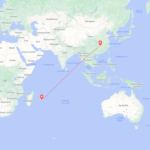





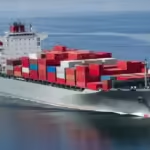
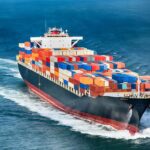
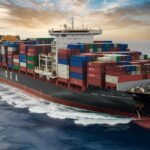
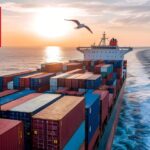
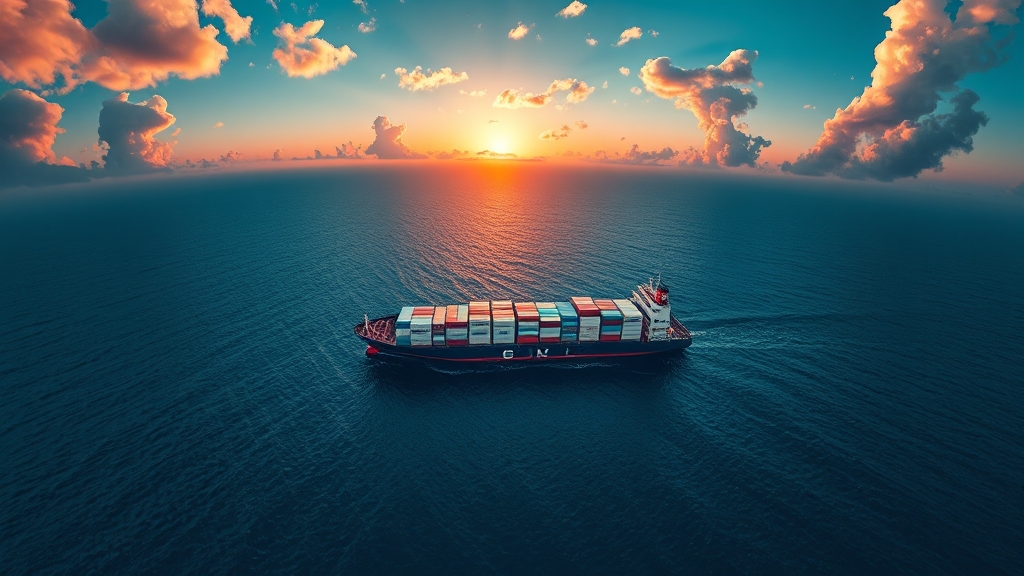
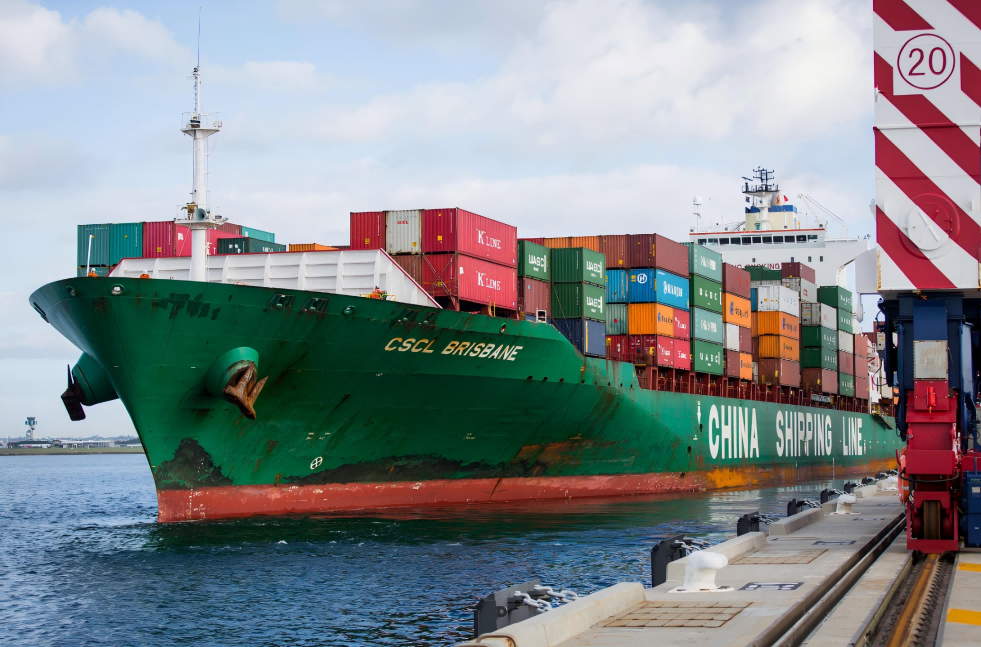
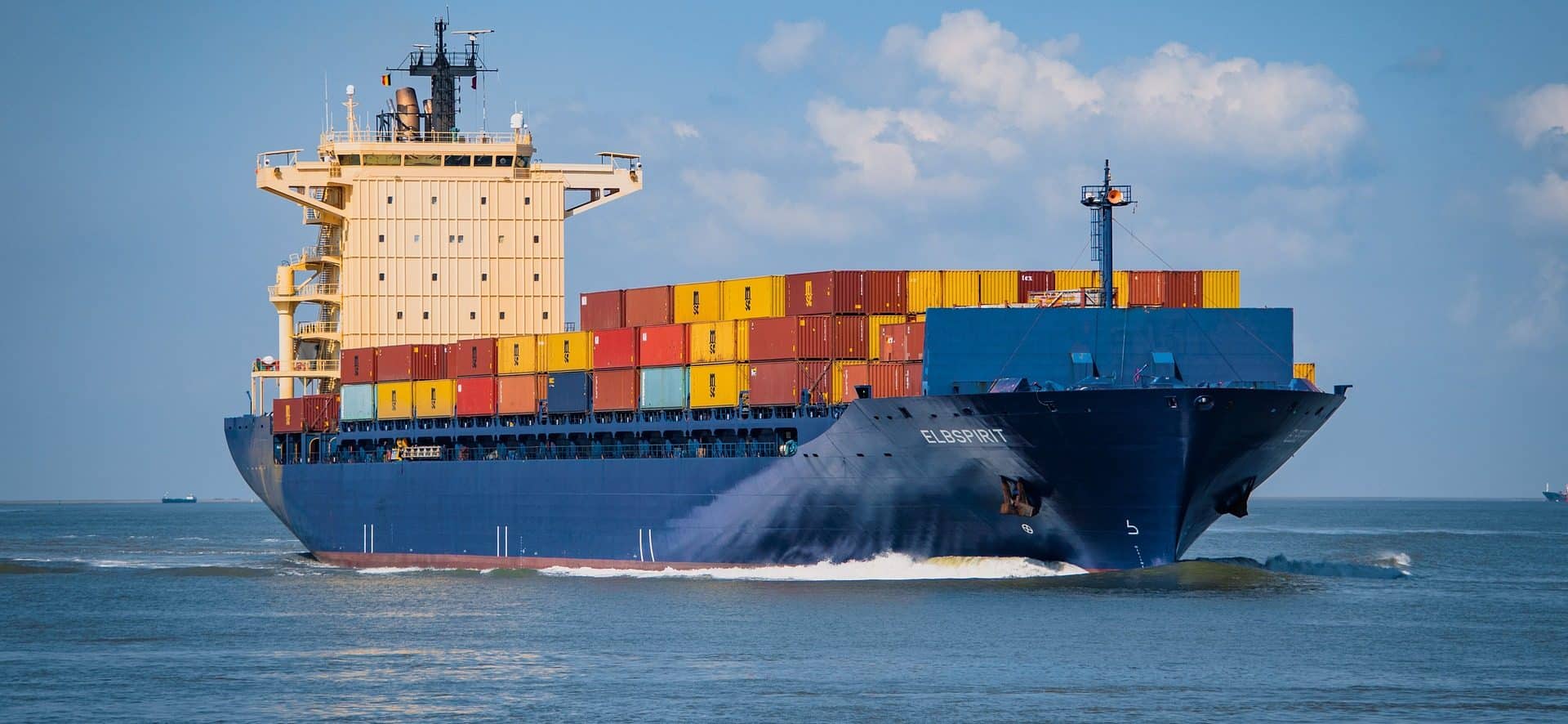

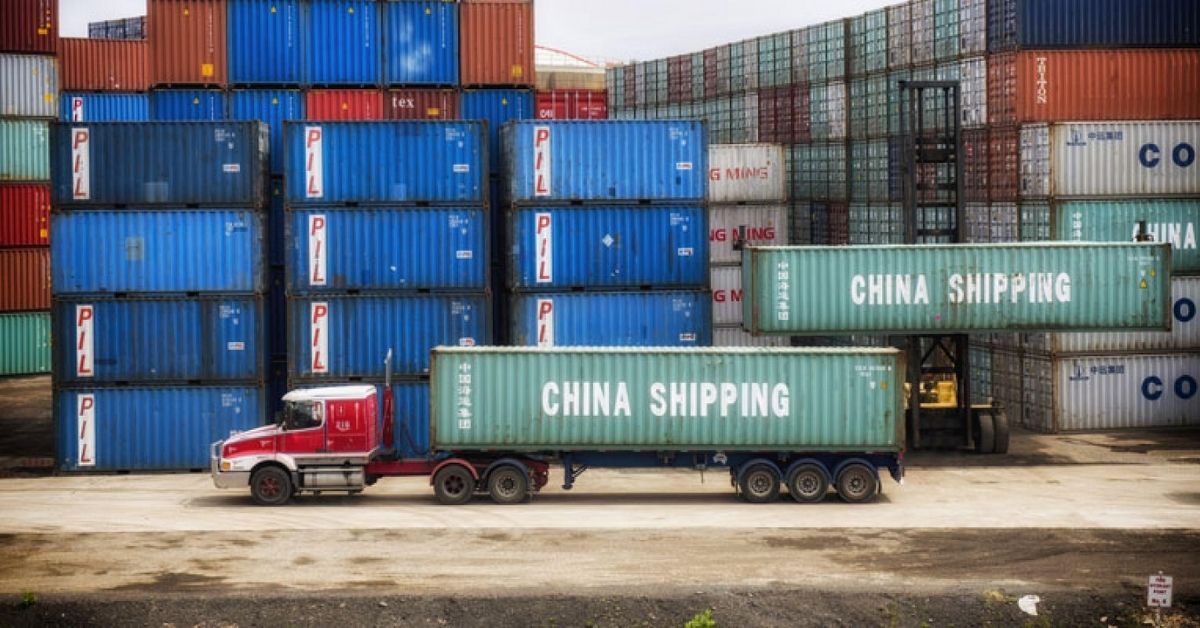





 Afrikaans
Afrikaans Shqip
Shqip አማርኛ
አማርኛ العربية
العربية Հայերեն
Հայերեն Azərbaycan dili
Azərbaycan dili Euskara
Euskara Беларуская мова
Беларуская мова বাংলা
বাংলা Bosanski
Bosanski Български
Български Català
Català Cebuano
Cebuano Chichewa
Chichewa 简体中文
简体中文 繁體中文
繁體中文 Corsu
Corsu Hrvatski
Hrvatski Čeština
Čeština Dansk
Dansk Nederlands
Nederlands English
English Esperanto
Esperanto Eesti
Eesti Filipino
Filipino Suomi
Suomi Français
Français Galego
Galego ქართული
ქართული Deutsch
Deutsch Ελληνικά
Ελληνικά Kreyol ayisyen
Kreyol ayisyen Harshen Hausa
Harshen Hausa Ōlelo Hawaiʻi
Ōlelo Hawaiʻi עִבְרִית
עִבְרִית हिन्दी
हिन्दी Hmong
Hmong Magyar
Magyar Íslenska
Íslenska Igbo
Igbo Bahasa Indonesia
Bahasa Indonesia Gaeilge
Gaeilge Italiano
Italiano 日本語
日本語 Basa Jawa
Basa Jawa ಕನ್ನಡ
ಕನ್ನಡ Қазақ тілі
Қазақ тілі ភាសាខ្មែរ
ភាសាខ្មែរ 한국어
한국어 كوردی
كوردی Кыргызча
Кыргызча ພາສາລາວ
ພາສາລາວ Latin
Latin Latviešu valoda
Latviešu valoda Lietuvių kalba
Lietuvių kalba Lëtzebuergesch
Lëtzebuergesch Македонски јазик
Македонски јазик Malagasy
Malagasy Bahasa Melayu
Bahasa Melayu മലയാളം
മലയാളം Maltese
Maltese Te Reo Māori
Te Reo Māori मराठी
मराठी Монгол
Монгол ဗမာစာ
ဗမာစာ नेपाली
नेपाली Norsk bokmål
Norsk bokmål پښتو
پښتو فارسی
فارسی Polski
Polski Português
Português ਪੰਜਾਬੀ
ਪੰਜਾਬੀ Română
Română Русский
Русский Samoan
Samoan Gàidhlig
Gàidhlig Српски језик
Српски језик Sesotho
Sesotho Shona
Shona سنڌي
سنڌي සිංහල
සිංහල Slovenčina
Slovenčina Slovenščina
Slovenščina Afsoomaali
Afsoomaali Español
Español Basa Sunda
Basa Sunda Kiswahili
Kiswahili Svenska
Svenska Тоҷикӣ
Тоҷикӣ தமிழ்
தமிழ் తెలుగు
తెలుగు ไทย
ไทย Türkçe
Türkçe Українська
Українська اردو
اردو O‘zbekcha
O‘zbekcha Tiếng Việt
Tiếng Việt Cymraeg
Cymraeg יידיש
יידיש Yorùbá
Yorùbá Zulu
Zulu